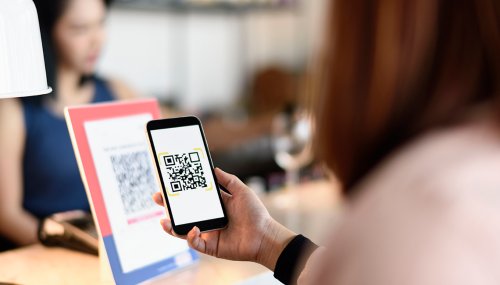Fraud &
Security
Instead of targeting banks, cyber criminals are now routinely targeting payment systems and mobile money service providers/end-users. Tackling fraud and ensuring secured operating platforms remains a core agenda for AMMBAN. Security concerns like cash handling, lodgment, theft, robbery, insurance, fake currency, money laundering, etc, remain critical issues to be addressed in the industry.
Mobile money and other form of mobile payment were expected to foster the financial inclusion of the unbanked populace, facilitate economic activities and deliver on employment and economic growth in the long run. But despite the excitement that greeted the scheme, the majority of the citizens still show a preference and trust in traditional banking services.

Major mobile money apps prevalent today do not provide any meaningful information about the technical details of their security, but the marketing campaigns associated with them claim that they are strong; while users must bear in mind that apps that fail to properly encrypt communication could allow cyber attackers to steal money from vulnerable customers.
Areas of Advocacy for AMMBAN includes the following
Transacting as mobile money and bank agents like other financial operations, faces risks and challenges. AMMBAN addresses fraud as a challenge in the provision of mobile financial services and in a bid to protect the interest of her members.
Fraud in the context of mobile money is the intentional and deliberate action undertaken by players in the mobile financial services ecosystem aimed at deriving gain (in cash or e-money), and/or denying other players revenue and/or damaging the reputation of the other stakeholders.
Mobile money offers tremendous promise to enable financial inclusion in developing countries, where in these countries more people have a mobile phone than a bank account. More so, mobile money has been viewed as an improvement to physical security because customers no longer need to carry large amounts of currency or travel long distances to make payments.
Use a lock for your mobile device
A PIN/password or an app with a lock/unlock feature that you can use to block your phone remotely in case it gets stolen or lost.
Make sure the mobile apps you use for payments and banking are safe and legitimate
Go to trusted sites only, check the app’s ratings and carefully read its permission requests and reviews from other users.
Try to find mobile payment apps that issue an immediate electronic receipt.
This way you can keep tabs on your mobile payments and bank account. If you don’t use such apps, check your statements regularly.Thirdly, adoption of consumer education through awareness campaigns. Awareness campaigns on specific areas of fraud in the print and electronic media will help in sensitizing the public about the specific risks.
Keep your mobile operating system up to date.
Malicious intruders can steal your financial data stored on your phone (bank account credentials etc.) or intercept text messages. Which means the need for powerful mobile security software installed on your phone is ever necessary.